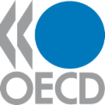The Organisation for Economic Co-operation and Development (OECD) released its 'Development Co-operation Report 2013,' which calls for a new approach to poverty eradication in the post-2015 development agenda based on peace building, empowerment, and a “twin-track” approach to gender.
 5 December 2013: The Organisation for Economic Co-operation and Development (OECD) released its ‘Development Co-operation Report 2013,’ which calls for a new approach to poverty eradication in the post-2015 development agenda based on peace building, empowerment, and a “twin-track” approach to gender.
5 December 2013: The Organisation for Economic Co-operation and Development (OECD) released its ‘Development Co-operation Report 2013,’ which calls for a new approach to poverty eradication in the post-2015 development agenda based on peace building, empowerment, and a “twin-track” approach to gender.
The report discusses the role of development cooperation in ending poverty, focusing on success stories from countries’ experiences of policies and approaches. The authors argue for inclusive wellbeing to be the aim, rather than only income-based measures of poverty. The report indicates that eliminating poverty and reducing inequality within and among countries will involve: supporting fragile States; targeting pockets of extreme poverty in middle-income countries; developing States’ own capacity for delivering public goods; and building foundations of peace and reduction of violence.
On gender, the report calls for a twin-track approach that will include a goal for gender equality and women’s empowerment, coupled with identifying gender gaps in all other goals and targets.
On assessment, it calls for national poverty measures that are coordinated and consistent with international measures, and for building up countries’ capacity in statistics for tracking development progress. The report supports the setting of national poverty eradication targets that fall within global minimum standards.
It makes the case for a view of development as a shift from poverty to power by eliminating social discrimination, and proposes providing systems of social protection such as employment guarantees, cash transfers, pensions and child and disability allowances, to enable people to break the cycle of poverty.
The report also recommends investing in smallholder agriculture to tackle poverty and promote broad-based economic growth in poor, largely rural countries.
It concludes that ending poverty is an inherently political process and calls for a better understanding of how power shifts can be influenced by development. [Publication: Development Cooperation Report 2013: Ending Poverty]